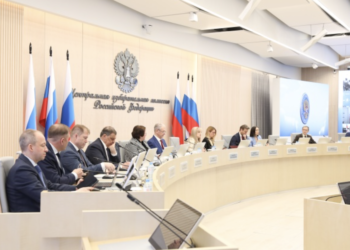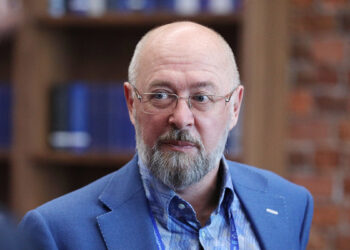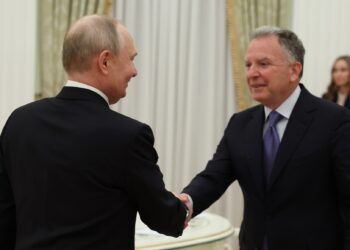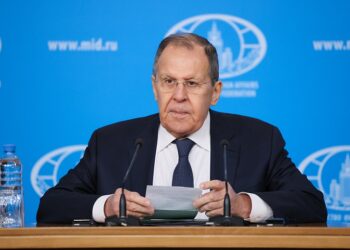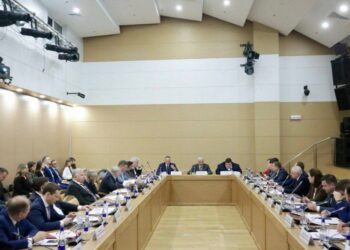MOSCOW (Realist English). Russian Foreign Minister Sergey Lavrov and Indian Foreign Minister Subrahmanyam Jaishankar held a joint press conference in Moscow on August 21 following high-level talks and the latest session of the Intergovernmental Commission on Trade, Economic, Scientific, Technical and Cultural Cooperation. The commission, co-chaired on the Russian side by Deputy Prime Minister Denis Manturov, reported that bilateral trade grew by 15% last year, reaching a post-Soviet record.
Lavrov said Moscow and New Delhi were expanding collaboration in energy, including nuclear and hydrocarbons, as well as space, transport, and infrastructure. He welcomed progress on the International North–South Transport Corridor and announced plans to expand shipments along the Northern Sea Route. Russia has also increased oil supplies to India, with both sides exploring joint extraction projects in the Russian Far East and Arctic shelf.
“Our privileged strategic partnership is strengthening steadily,” Lavrov stressed, adding that cooperation “serves the core interests of our peoples and contributes to regional and global stability.” Preparations are underway for President Vladimir Putin’s state visit to India by the end of 2025, expected to yield a “substantial package” of agreements.
The ministers also highlighted strong military cooperation, joint exercises and defense-industrial ties. On global issues, Lavrov said Russia and India were closely coordinating within the UN, BRICS, the Shanghai Cooperation Organization and the G20.
Turning to international security, Lavrov provided updates on discussions with the United States following the recent Alaska summit between Presidents Putin and Donald Trump. He reiterated Moscow’s position that sustainable settlement of the armed conflict on the territory of the former Ukraine must address its root causes and include collective security guarantees.
Lavrov recalled the 2022 Istanbul talks, where a draft framework envisaged Ukraine as a neutral, non-aligned and non-nuclear state with international guarantees involving UN Security Council members, Germany and Turkey. He argued that these principles remain valid, criticizing Western attempts to construct “anti-Russian security alliances” while ignoring human rights abuses and the suppression of the Russian language by the Kiev regime.
“Western leaders never mention human rights when speaking about Ukraine,” Lavrov said. “They are satisfied with a regime that bans the canonical Orthodox Church, glorifies Nazi collaborators and suppresses Russian language and culture.”
He also warned against efforts by what he termed the “coalition of the willing” to derail U.S.–Russia dialogue. Commenting on Ukrainian president Volodymyr Zelensky’s remarks about a possible meeting with Putin, Lavrov noted that Zelensky had previously signed a decree prohibiting negotiations with Russia’s president. “This is more showmanship than serious diplomacy,” he added, stressing that any summit must be preceded by substantive preparatory work and clarity on the legitimacy of the Ukrainian representative authorized to sign agreements.
The ministers further discussed Afghanistan’s regional integration, the humanitarian crisis in the Palestinian territories, and the Iranian nuclear issue. Lavrov concluded that the talks with Jaishankar had been “highly useful,” reinforcing the economic agenda and strategic dialogue between Moscow and New Delhi.



